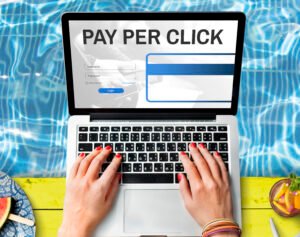Introduction to PPC Marketing
In today’s digital landscape, Pay-Per-Click (PPC) marketing stands as one of the most effective ways to drive traffic to your website. But what exactly is PPC, and why has it become so crucial for businesses? In simple terms, PPC is a model of internet marketing where advertisers pay a fee each time their ad is clicked. It’s a way of buying visits to your site rather than attempting to earn those visits organically. Understanding PPC can help businesses not only attract targeted traffic but also achieve their marketing goals efficiently.

Understanding the Basics of PPC
At its core, PPC involves bidding on keywords and phrases relevant to your business. When users search for those terms, your ad appears at the top of the search engine results, and you pay when someone clicks on your ad. The main players in this ecosystem are advertisers (you), publishers (search engines like Google), and consumers (potential customers). This system allows for precise targeting and immediate visibility, making it a powerful tool in any digital marketer’s arsenal.
Types of PPC Ads
Search Ads
Search ads are the most common form of PPC advertising. They appear on search engine results pages (SERPs) when someone searches for a keyword relevant to the ad. These ads are particularly effective because they target users who are actively looking for specific information, products, or services.
Display Ads
Display ads, on the other hand, are shown on websites within the Google Display Network. Unlike search ads, display ads can appear to users who aren’t necessarily looking for your product but might be interested based on their browsing behavior. This type of ad is excellent for brand awareness and retargeting.
Shopping Ads
Shopping ads are a must for eCommerce businesses. These ads showcase your products directly in the search results, complete with images, prices, and product descriptions. They are highly effective in driving traffic and increasing sales for online stores.
Video Ads
With the rise of platforms like YouTube, video ads have become increasingly popular. Video ads can be incredibly engaging and are perfect for conveying complex messages or showcasing your product in action. They offer a unique way to capture the audience’s attention.
Remarketing Ads
Remarketing ads are a powerful tool for bringing back visitors who have previously interacted with your site but didn’t make a purchase. By targeting these users with tailored ads, you can encourage them to return and complete their transactions.
How PPC Auctions Work
PPC isn’t just about paying more than your competitors; it’s about bidding smartly. When you set up a PPC campaign, you enter into an auction every time someone searches for your keyword. Your ad’s placement is determined not just by your bid amount but also by your Quality Score, which is based on the relevance and quality of your ad, keywords, and landing page. A higher Quality Score can lower your cost-per-click (CPC) and improve your ad’s position.
Importance of Keyword Research in PPC

Selecting the Right Keywords
Keywords are the foundation of any PPC campaign. Choosing the right keywords can make or break your campaign. You need to find terms that not only attract traffic but also convert. Tools like Google’s Keyword Planner can help you identify high-performing keywords that align with your business goals.
Long-Tail vs. Short-Tail Keywords
Long-tail keywords are longer, more specific phrases that typically have lower search volume but higher intent. Short-tail keywords are broader and more competitive. Balancing both in your PPC strategy can help you reach a wider audience while also targeting niche markets.
Setting Up a PPC Campaign
Creating an Effective Ad Copy
Your ad copy is what convinces users to click on your ad. It needs to be compelling, relevant, and include a clear call-to-action (CTA). Testing different variations of your ad copy can help you find the most effective messaging.
Choosing the Right Ad Extensions
Ad extensions enhance your ads by providing additional information such as location, phone number, or links to specific pages on your site. Using ad extensions can improve your ad’s visibility and increase click-through rates (CTR).
Setting a Budget
Budgeting is crucial in PPC. You need to allocate your budget efficiently to maximize your return on investment (ROI). Start by setting a daily or monthly budget, then monitor and adjust based on performance.
Tracking and Measuring PPC Success
Importance of Conversion Tracking
Conversion tracking allows you to see which ads and keywords are driving the most conversions, whether that’s sales, sign-ups, or another goal. Setting up conversion tracking is essential to understand the effectiveness of your PPC campaigns.
Analyzing PPC Metrics
Several metrics are critical to measuring PPC success, including CTR, CPC, conversion rate, and ROI. Analyzing these metrics helps you identify what’s working and what needs improvement.
A/B Testing in PPC
A/B testing involves running two versions of an ad to see which performs better. This process is key to optimizing your PPC campaigns and can lead to significant improvements in performance over time.
Common PPC Mistakes to Avoid
Overbidding and Wasting Budget
One common mistake in PPC is overbidding on keywords, which can quickly drain your budget without yielding results. It’s essential to set bids that align with your business goals and continuously monitor performance.
Neglecting Negative Keywords
Negative keywords prevent your ads from showing up for irrelevant searches. Failing to use negative keywords can lead to wasted ad spend and lower ROI. Regularly updating your negative keyword list is crucial for campaign efficiency.
Benefits of PPC Marketing
Immediate Results
Unlike SEO, which can take months to see results, PPC offers immediate visibility on search engines. This immediacy makes PPC ideal for promoting time-sensitive offers or quickly driving traffic to a new product launch.
Targeted Advertising
PPC allows you to target specific demographics, locations, and even times of day, ensuring your ads reach the right audience. This level of targeting increases the likelihood of conversion and improves the overall efficiency of your ad spend.
Scalability and Flexibility
One of the biggest advantages of PPC is its scalability. You can start with a small budget and scale up as you see results. Additionally, PPC campaigns are highly flexible, allowing you to make real-time adjustments based on performance data.
PPC vs. SEO: Which is Better?
Cost-Effectiveness
While PPC can be more expensive in the short term, it often provides quicker returns. SEO, on the other hand, is more cost-effective over time but requires a longer-term investment. The right strategy depends on your business goals and budget.
Speed of Results
PPC delivers immediate results, while SEO is a long-term strategy. If you need quick visibility and traffic, PPC is the way to go. However, for sustainable growth, a combination of PPC and SEO is often the best approach.
Long-Term vs. Short-Term Strategies
PPC is typically used for short-term goals, such as driving traffic during a sale or promoting a new product. SEO, however, focuses on building long-term organic traffic. Both strategies are essential for a balanced digital marketing plan.
Choosing the Right PPC Platform
Google Ads
Google Ads is the most popular PPC platform, offering a vast audience and robust tools for managing campaigns. Its reach and versatility make it a top choice for advertisers.
Bing Ads
Though less popular than Google Ads, Bing Ads can be a valuable platform, especially for reaching older or more affluent audiences. It’s also typically less competitive, offering lower CPCs.
Social Media PPC
PPC on social media platforms like Facebook and Instagram has grown rapidly. These platforms offer highly targeted advertising options, making them ideal for reaching specific demographics or interests.
Case Studies of Successful PPC Campaigns
Case studies provide real-world examples of how PPC has driven success for businesses. For instance, a small business might have doubled its revenue through a well-targeted Google Ads campaign. These examples highlight the potential of PPC when executed correctly.
Future Trends in PPC Marketing
Automation and AI in PPC
The future of PPC is likely to involve more automation and AI. Tools that automatically adjust bids, select keywords, and optimize ad copy are becoming increasingly sophisticated, allowing advertisers to focus more on strategy and less on manual tasks.
Voice Search and PPC
As voice search continues to grow, it’s shaping the way people search and interact with ads. PPC strategies will need to adapt to this trend by focusing on natural language keywords and conversational ad copy.
The Role of Video in PPC
Video content is becoming more central to PPC strategies. As platforms like YouTube and TikTok gain popularity, video ads will play an increasingly important role in reaching audiences and conveying messages effectively.
Tips for Maximizing PPC ROI
Continuous Monitoring and Optimization
PPC is not a set-it-and-forget-it strategy. Continuous monitoring and optimization are essential for maintaining and improving campaign performance. This might involve adjusting bids, testing new ad copy, or refining your keyword strategy.
Leveraging Data Analytics
Data analytics is at the heart of successful PPC campaigns. By analyzing performance data, you can make informed decisions that drive better results. Tools like Google Analytics and PPC management software are invaluable for this purpose.
Working with PPC Experts
If managing a PPC campaign seems overwhelming, working with PPC experts can be a wise investment. Professionals can bring a wealth of experience and insights, helping you maximize your ROI and avoid common pitfalls.
Conclusion
In conclusion, PPC marketing is a powerful tool for driving targeted traffic, increasing conversions, and achieving business goals. While it requires careful planning, ongoing management, and a clear strategy, the benefits far outweigh the challenges. Whether you’re a small business looking to increase visibility or a large corporation aiming to dominate your industry, PPC can be tailored to meet your needs.

